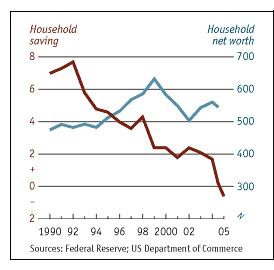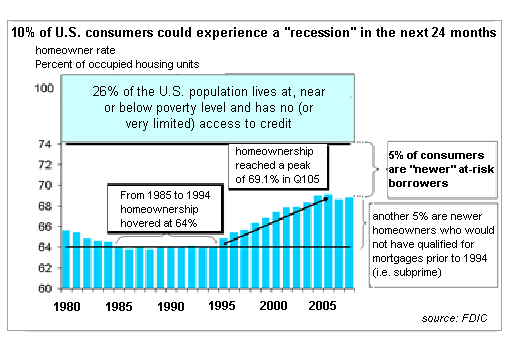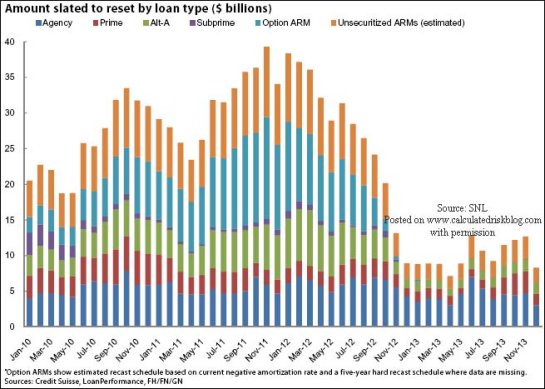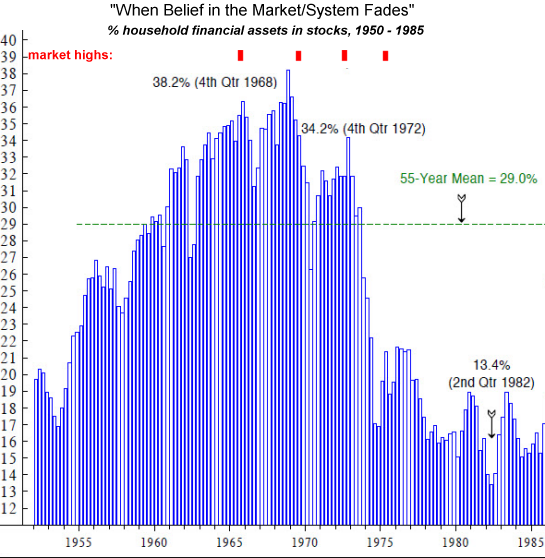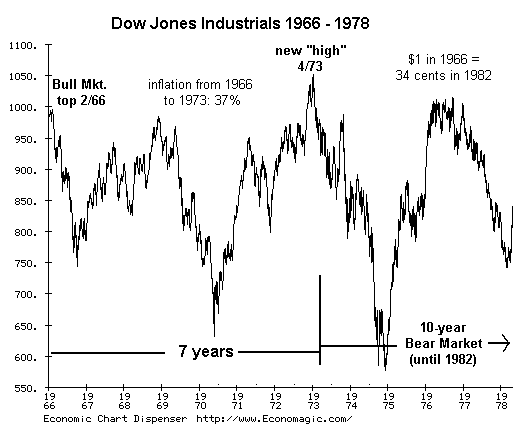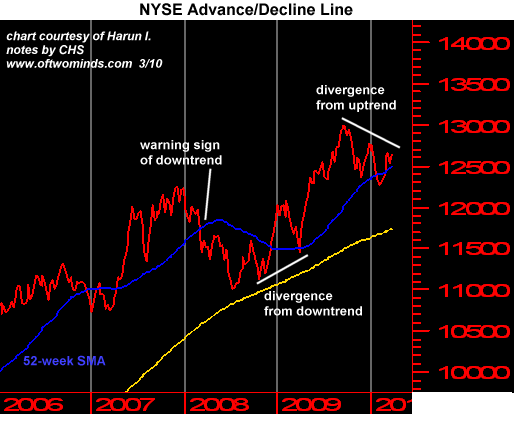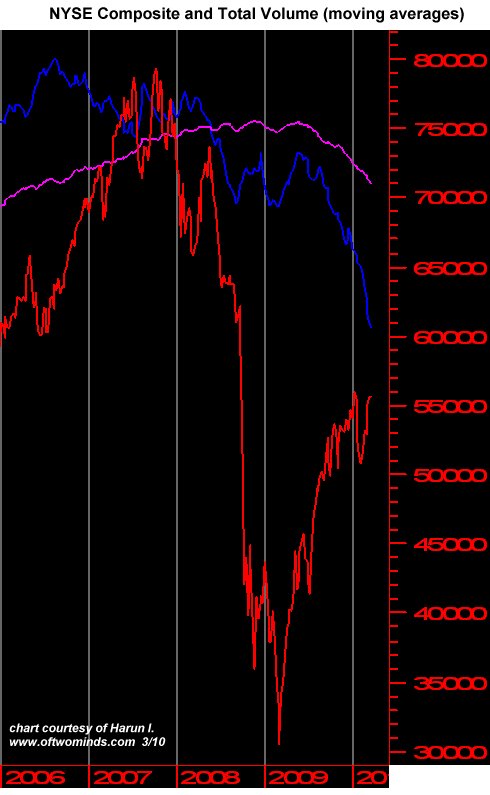Utterly lost in the sound and fury of "healthcare reform" is the utter loss of personal autonomy and responsibility for one's health.
The most important book on healthcare reform was published 34 years ago: Limits to Medicine: Medical Nemesis, the Expropriation of Health by Ivan Illich (1976).I am indebted to David D., M.D., one of a number of doctors and nurses who contribute to oftwominds.com, for this reading recommendation.
Like my own Survival+ critique, (written before readers alerted me to Illich's body of work), Illich's profound understanding of our fundamental ills lies far beyond the shallow, extremely limited reach of left-right ideologies, be they "free market," socialist, Marxist, cartel/crony-capitalism, etc.
As a result of not fitting into the narrow confines of mainstream academic, economic and political boxes, Illich's critiques have faded into relative obscurity.
Illich saw that the political and economic institutions of industrial/post-industrial economies have become entirely counter-productive to health and liberty, and that a pervasive culture of what he termed disabling professions (what I call the upper-casteprofessionals who serve the status quo Power Elites) eroded and eventually expropriated personal autonomy--that is, control and responsibility for ones own health, education, livelihood(s), living arrangements, shelter, transportation and life.
This critique applies equally to "capitalism" and "socialism" alike; the socialist "expert" bureaucrat is just as delighted to rule one's life in every way as the advanced neoliberal capitalist functionary/apparatchik.
This inability to serve either ideological master has doomed Illich's work to low visibility in the cultural zeitgeist, and his powerful critique of disabling professions has naturally won him little praise in the inner sanctum of disabling professions: academia and its web of think tanks, etc.
The loss (or destruction) of patient autonomy and responsibility has been so complete that "healthcare reform" does not even recognise its absence. If financial collusion, fraud and embezzlement is the elephant in the room no one dares speak to directly, then personal responsibility is the blue whale in the tank than none dare "see."
As Dr. D. explained to me, the loss of individual autonomy is not just a loss of personal responsibility--it requires the destruction of community as well.
I do not claim to have reached the high summit of Illich's insights, but I immediately recognized how his insights were completely of a piece with the Survival+ edifice, which is built on skeptical identification of incentives and who benefits (cui bono) from transactions and political/ financial structures, and on an integrated understanding of things which have deliberately been mystified, reified, confused, distorted and derealizedby the disabling professions which serve the status quo's power structures.
Healthcare is one such power structure. As I noted in The High Water Mark of a Broken System: U.S. "Healthcare" (March 20, 2010), the U.S. spends twice as much as other developed (post-industrial, neoliberal capitalist) nations do as a percentage of GDP, yet our health lags those nations by any metric you choose.
That is the acme of a failed system, and the loss of autonomy/personal responsibility is at the very heart of that systemic, ontological failure.
Thus it is crazy-making in the extreme that "healthcare reform" completely ignores this loss of autonomy/personal responsibility (other than brief spurts of lip-service). Indeed, "reform" must ignore this, as recognition of the loss of this fundamental liberty would eventually bring the system down.
An analogy would be President Reagan's labeling of the Societ Union as an Evil Empire. Simply stating out loud what was obvious but politically verboten had a profound impact, both within the U.S. and in the Soviet Union itself (we came to learn after its collapse).
Thus to declare the American "healthcare system" as the perfection of counter-productivity and the enemy of personal autonomy, liberty, health and community, and the very cause of illness itself, is to undermine the entire failed contraption from its foundation to its teetering towers.
Another M.D. correspondent, Ishabaka, recently commented on the consequences of the destruction of personal responsibility in healthcare. I aked him via email what policy changes might encourage/rehabilitate individual responsbility in healthcare. Here are his comments in reply:
As to policy changes, that is something I have given a lot of thought to. I feel that Americans have completely given up on the concept of personal responsibility since World War Two. We now live in a country where anything bad that happens to you is someone else's responsibility, whether you are Lloyd Bancfein of Goldman Sachs and run your investment bank into the ground, or Joe Schmoe, who fails to notice the safety yellow speed bump in Wal-Mart's parking lot, trips over it, and sues Wal-Mart and goes on disability for neck and back pain. Winds up on Oxycontin too.One of my "other" jobs is working at a chiropractor's office. I see some seriously injured patients there -- some who need major surgery as the result of automobile collisions in which the other driver was at fault, but I see a ton of people exaggerating their injuries from slip and falls (known as "sliplash" to chiropractors), and fender-benders, and want to be on addictive pain pills till Kingdom Come.
I had to apologize to a woman today because she was upset that on her last visit I suggested losing weight might help her low back to heal. She told me she was "big boned". Charles, she was somewhere between morbidly obese (more than twice ideal body weight) and super-obese (yes, that is a medical term, and means over three times ideal body weight).
I got home and just read an article on how one third of breast cancers are preventable - they are caused by obesity. I didn't know that. One in three American women will get breast cancer in their lifetime. The article said that medicine has done all it can in terms of breast exams and mammograms, and any further reduction in this horrible disease is the responsibility of the women of America. Good luck with that.
Ten years ago, our family visited a friend in San Antonio, Texas, and toured the city's historical museum. There, we saw a real Conestoga wagon. I was amazed. It was smaller than my mini-van. People loaded their families and all the belongings they could carry and headed west - a thousand miles or more - to seek freedom and fortune. They faced weather (Donner party), wild animals, hostile natives, and either busted sod, got their seed in, built a house and cut the wood to heat it through winter, and raised a crop - or they died.
They had no 911, Police, Army, doctors, lawyers; they had only themselves to rely on. That was a little over one hundred years ago.
If we could reinstate just 10% of that personal responsibility in Americans today, I think it would go a great way towards solving our problems. How to do so? I simply don't know. I think the Boy and Girl Scouts were on the right track (know any kids who are scouts today? I was one...). I also think some sort of mandatory rigorous national service at the end of teenage years - whether it be military, Peace Corps, or just cleaning up the billions of pounds of trash on our land and in our water might help.
If appointed healthcare Tsar, I would take all the dead-beats and gold-bricks off disability as one of the key features -half the cost we pay now. Thank Heavens we have just passed an over 1,900 page health care bill. My health care bill would have fit on nine pages with space to spare.
I'm tired, and my feet hurt from working all day. I deserve disability. I'm calling my lawyer tomorrow!
P.S. I just thought I'd add that I officially started my practice of medicine on July 4, 1981. I earned more money, and had a higher standard of living then than I have ever had since (income goes ever downwards for more unsatisfying work).
I was not bedeviled by malpractice lawsuits, and ordered about 10% the number of tests of all kinds that I order now. I prescribed only generic drugs unless there was nothing else that would do the job. I steadfastly refused to prescribe antibiotics for useless indications, such as the common cold, which is caused by a virus and IS NOT HELPED BY ANTIBIOTICS.
The hundreds of millions of prescriptions for antibiotics written for patients suffering from the common cold are the main reason we have a serious problem with antibiotic resistant bacteria in the U.S.A. today, including recently, some bacteria which cannot be killed by any available antibiotic, and are killing humans.
Thank you, Ishabaka, for these unvarnished views from the "front lines" of healthcare. Other M.D.'s and nurses have written me similar experiences, and like Ishabaka they too must hide their identity lest they suffer the consequences of telling the unwelcome and politically incorrect truth.
One way the U.S. healthcare system will devolve is the M.D.'s and R.N.'s will opt out. That is, just quit, or remove themselves to roles which limit their exposure to the toxic insanity which passes for healthcare now.
In my analysis, the political requirement to leave the truth unspoken lest it dismantle the status quo which benefits various Elites and cartels is called the politics of experience. Our politics of experience is so shriveled that we do not even recognize our own loss of autonomy and responsibility, which is the flipside of liberty.
We are so far gone that we unconsciously accept the radical notion that we can only be "healthy" if we are in the care of "experts" and taking various medications.
This extends into every nook and cranny of "healthcare," including diet, nutrition, and fitness.
Let me illustrate from personal experience. I don't discuss my own personal life here much, because I understand most acutely that it is banal, commonplace and entirely lacking in interest. When my own views flash through my careful journalistic analysis, I am routinely accused of being a Puritan or worse.
So I've been suffering from lower back pain for the past five months. The causes include stress, poor posture, too much time sitting in front of a computer, and laziness. Yes, life put on a full-court press (basketball analogy) the past six months, but my stress management was inadequate, my self-awareness was inadequate and my fitness was inadequate.
So responsibility for one's own health is not some disembodied, academic concept to me; I have been in a lot of pain, and have felt a pressing desire for liberation from pain.
Since I've been practicing wushu for a few years, and doing some very simple Tai Chi Chuan stretching for decades, it was natural that I would step up my stretching to deal with the pain.
About a month ago a good friend and I went hiking for a few days in the Sierra, and after watching me do my "upon rising" initial stretches, including a low leg stretch, he said, "I don't think I could do that." I was silent, but thought, "Of course you couldn't--I've been doing this for over two years, enduring the discomfort hundreds of times--and I'm still not very limber."
Then he murmured, "I should get a personal trainer when I get home."
You see the underpinnings of this mindset: we all need an "expert" to "help" us, to "instruct" us, to "heal" us, etc. etc. I had just showed him the basic stretches; who needs a personal trainer? To tell you that you have to do some things even if they hurt, even as you make sure you don't really hurt yourself?
This mindset is so pervasive that I don't think many Americans are even aware of it. Like cheap petroleum, it is assumed to be like air.
My brother and I have the "reckless" gene. We don't go out of our way to take chances; it's just that what we consider "safe" is apparently pretty far out on thin ice. Thus he's crashed motorcycles numerous times, just took a bad fall skiing in the Alps, etc. and I've fallen off roofs and ladders a number of times, wiped out on my bicycle, spilled motorcycles (when I had access to them) and various other injuries. So if anything, my back has taken all sorts of abuse and been subjected to carrying heavy loads of lumber and other materials for the past 37 years (less so now).
Bruce Lee once commented in an interview that the martial arts require unifying two apparently paradoxical attributes: instinct and self-control/self-discipline. We might say this applies not just to wushu (all martial arts, including "internal" disciplines) but to life itself.
It is our instinct to love fatty, salty, sweet foods, and to gorge on them when they are present. It is our instinct to avoid pain and discomfort and to "take it easy." But health requires a modicum of self-control, and the mastery of mind-body requires self-discipline and the understanding that discomfort is part of the process of fitness.
The body is constantly rebuilding itself, literally one cell at a time. It is designed and selected to heal itself, if given half a chance.
Sometimes it seems as if half of Americans are debilitated by having too little to do, even as the other half is debilitated by having too much to do--running The Red Queen's Race just to stay in place. Thus the entire nation is prone to disabling illness, both mental and physical--which are the same thing, as the mind and body are one, a dynamic union.
My first love's father was an M.D. (an internist with four daughters) and though he rarely "talked shop" he did tell me once that most of his patients just wanted someone to listen to them. This was a profound insight into health and the state of American culture as far back as the 1970s. People feel overwhelmed, unappreciated, lonely and without voice or outlet for their inner fears and frustrations. Fearing being labeled "mentally ill," they avoid seeking psychiatric or psychological counseling, and so they fall ill with "physical" symptoms which then enable them to see a doctor.
The community of other resources has largely been lost; people have been trained to be passive recipients of "expert" attention and to discount the mind-body unity that lies at the heart of yoga-ayurvedic and wushu.
This is not to say that surgery or medications aren't necessary at times; of course they are. If there's a tumor or malignancy, cut it out. But the structure of our "healthcare"/sickcare should make us wonder about our definition of "health" and our understanding of what generates health and what generates illness and ill-health.
Without an integrated understanding of food, diet, nutrition, mental health, fitness and the social/political/financial forces which benefit from illness and a deranged mindset, then we cannot even grasp the basics of "reform."
You have probably noticed that many people who are careful about their diet (so-called "health nuts") are cancer survivors. That is no accident; the prospect of death is an eye-opener, as is the experience of chronic pain.
Pain is an invitation to reach for a higher level of awareness, self-knowledge and self-discipline. I know this runs counter to literally everything implicit and explicit in American "healthcare," but it is nonetheless true on a level which is largely inaccessible to the status quo understanding of "health" and "healthcare."
By forcing me to incorporate chi kung and yoga into my basic wushu stretching, and by forcing me to stretch not three times a week but three times a day, my pain is pushing me to a new, higher understanding of stress management, self-awareness, self-knowledge, fitness and inner strength.
To think there is a magic pill or passive "take it easy" alternative is illusory.
It is peculiar how disembodied we are from the economic, political and cultural causal forces behind our ill-health and profound disunity/derangement.
It is painful to see how these forces have created an epidemic of obesity (i.e. "diabesity") which is debilitating much of the citizenry, and how these structures elicit self-loathing in the overweight even as they turn a once-normal state of modest fitness into "freakishly healthy" (our friends' teenager's description of my wife and I).
We have reached such a point of cultural degradation that the truly fit are almost as ashamed of their visible fitness as the obese are of their visible girth; to be fit is to be resented as some sort of overbearing moral nag, as if being fit (what was once "normal-sized") is some sort of threat to the status quo of managing diabesity for stupendous profits.
Yes, liberty, autonomy and personal responsibility are threats to the status quo, as are self-control, community, self-awareness, and knowledge of nutrition, diet, cooking and fitness. None of this is obscure; Anne Underwood and Dr. Walter C. Willett, chair of the department of nutrition at the Harvard School of Public Health, recently wrote a short essay in Newsweek which struck multiple "obvious" truths that almost no one ever speaks to: Crimes of the Heart It's time society stopped reinforcing the bad behavior that leads to heart disease— and pursued policies to prevent it.
Their suggestions included:
Subsidize whole grains, fruits, and vegetables in the food-stamp program. The underprivileged tend to have disastrously unhealthy diets, and no wonder: $1 will buy 100 calories of carrots—or 1,250 calories of cookies and chips. The government should offer incentives for buying produce.
Incorporate physical education into No Child Left Behind.
Require that sidewalks and bike lanes be part of every federally funded road project.
What we have now is a social/financial system constructed of inputs which essentially guarantee ill-health (garbage in, garbage out). To resist this requires what amounts to (in today's lax standards) supreme self-discipline and a rare integrated understanding of the perverse consequences of TV, gaming, unlimited doses of the Web, factory food, MSM and State propaganda, Big Ag/Big Food, Fast Food multinationals, sickcare, disabling professions and an exploitative status quo which profits from the management of chronic disease.
In this cultural and economic setting, the "reform" is no reform at all; it is a pathetic simulacrum of real reform, a deranged extension of the failed systems so firmly and profitably entrenched in the national psyche.
As always, we can start our own "reform" by taking back control of our own lives (autonomy) and taking back responsibility for our own health.
Here are two other important books on medicine, health and healthcare:
The Rise and Fall of Modern Medicine by James Le Fanu M.D.
by James Le Fanu M.D.
Before You Take that Pill: Why the Drug Industry May Be Bad for Your Health by Dr. J. Douglas Bremner, M.D.
by Dr. J. Douglas Bremner, M.D.
I strongly recommend both.
If you haven't visited the forum, here's a place to start. Click on the link below and then select "new posts." You'll get to see what other oftwominds.com readers and contributors are discussing/sharing.
DailyJava.net is now open for aggregating our collective intelligence.
Order Survival+: Structuring Prosperity for Yourself and the Nation and/or Survival+ The Primer from your local bookseller or from amazon.com or in ebook and Kindle formats.A 20% discount is available from the publisher.
Of Two Minds is now available via Kindle: Of Two Minds blog-Kindle

| Thank you, Iris R. ($25), for exceptionally generous donation to the site (in response to my 2/21 rant). I am greatly honored by your support and readership. | | Thank you, Richard T. ($40), for your stunningly generous donation to the site (in response to my 2/21 rant). I am greatly honored by your support and readership. |
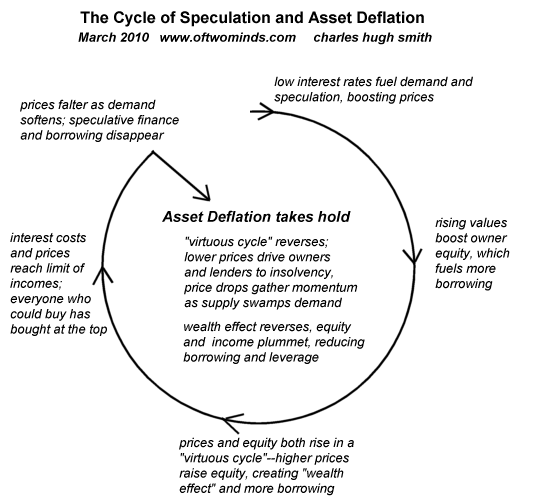





















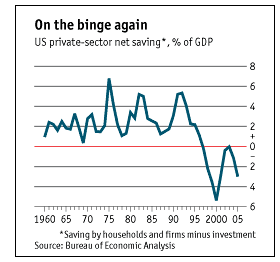 To fully understand the paradox, we need to start with the fact that the U.S. economy depends on consumers borrowing ever-larger sums of money for its "growth." When borrowing ceases, the economy tanks.
To fully understand the paradox, we need to start with the fact that the U.S. economy depends on consumers borrowing ever-larger sums of money for its "growth." When borrowing ceases, the economy tanks.